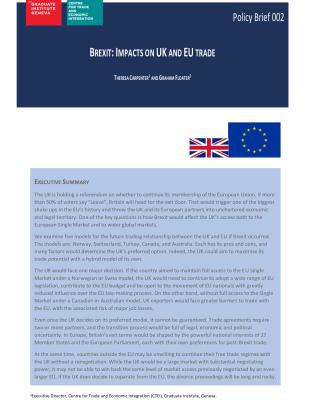The UK is holding a referendum on whether to continue its membership of the European Union. If more than 50% of voters say "Leave", Britain will head for the exit door. That would trigger one of the biggest shake ups in the EU's history and throw the UK and its European partners into unchartered economic and legal territory. One of the key questions is how Brexit would affect the UK's access both to the European Single Market and to wider global markets. We examine five models for the future trading relationship between the UK and EU if Brexit occurred. The models are: Norway, Switzerland, Turkey, Canada, and Australia. Each has its pros and cons, and many factors would determine the UK's preferred option. Indeed, the UK could aim to maximise its trade potential with a hybrid model of its own. The UK would face one major decision. If the country aimed to maintain full access to the EU Single Market under a Norwegian or Swiss model, the UK would need to continue to adopt a wide range of EU legislation, contribute to the EU budget and be open to the movement of EU nationals with greatly reduced influence over the EU law-making process. On the other hand, without full access to the Single Market under a Canadian or Australian model, UK exporters would face greater barriers to trade with the EU, with the associated risk of major job losses. Even once the UK decides on its preferred model, it cannot be guaranteed. Trade agreements require two or more partners, and the transition process would be full of legal, economic and political uncertainty. In Europe, Britain's exit terms would be shaped by the powerful national interests of 27 Member States and the European Parliament, each with their own preferences for post-Brexit trade. At the same time, countries outside the EU may be unwilling to continue their free trade regimes with the UK without a renegotiation. While the UK would be a large market with substantial negotiating power, it may not be able to win back the same level of market access previously negotiated by an even larger EU. If the UK does decide to separate from the EU, the divorce proceedings will be long and rocky.



